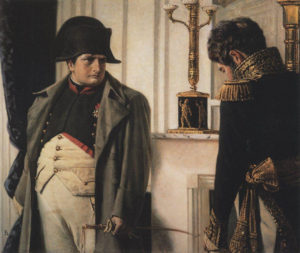Over at the Wall Street Journal, there’s a story about how e-commerce has changed rural life:
MANGUM, Okla.—Vince Bledsoe, a United Parcel Service Inc. delivery man in this remote tiny town, remembers the exact moment he knew that e-commerce had changed the way rural America shops.
He was taping up a package a few months ago to one of the town’s 3,000 residents and noticed it contained a bottle of bleach. “It wasn’t lavender [scented] or anything,” he recalls. “It was just a bottle of plain Clorox.”
See, E-Commerce is a Boon for Rural America, But It Comes With a Price @ Wall Street Journal (subscription req’d).
The price that the Journal mentions is the cost of shipping to small, rural destinations.
As much as the Web may have changed small-town shopping expectations, it’s changed small-town politics, too.
Both in style and substance, rural communities are exposed to high-caliber written analyses, from across the country, that often leave local politicians’ explanations looking weak, and local publications that flack for those politicians looking laughable.
Honest to goodness, Americans from every part of the country are capably and effectively parsing and critiquing national stories on Facebook, Twitter, and in blog posts, but somehow local politicians carry on as though in their towns no one knew about those media or those critiques.
We’re an educated and competitive people, in a town with a university, but when officials here speak and write in defense of their proposals they sometimes do so as though this were a city of weak-minded children.
That notion couldn’t be more misguided. Whitewater is filled with sharp, capable residents who deserve policy standards to match.
Here’s a suggestion: go onto the Twitter feeds or websites of major newspapers, and watch how effectively many common people from across America are critiquing reporting during the election.
There’s much that’s unimpressive, but at those national publications one will also find powerful, immediate critiques of reporters’ & officials’ lazy thinking and tired assumptions.
We can easily do as well as readers who are capably taking America’s leading publications to task.

